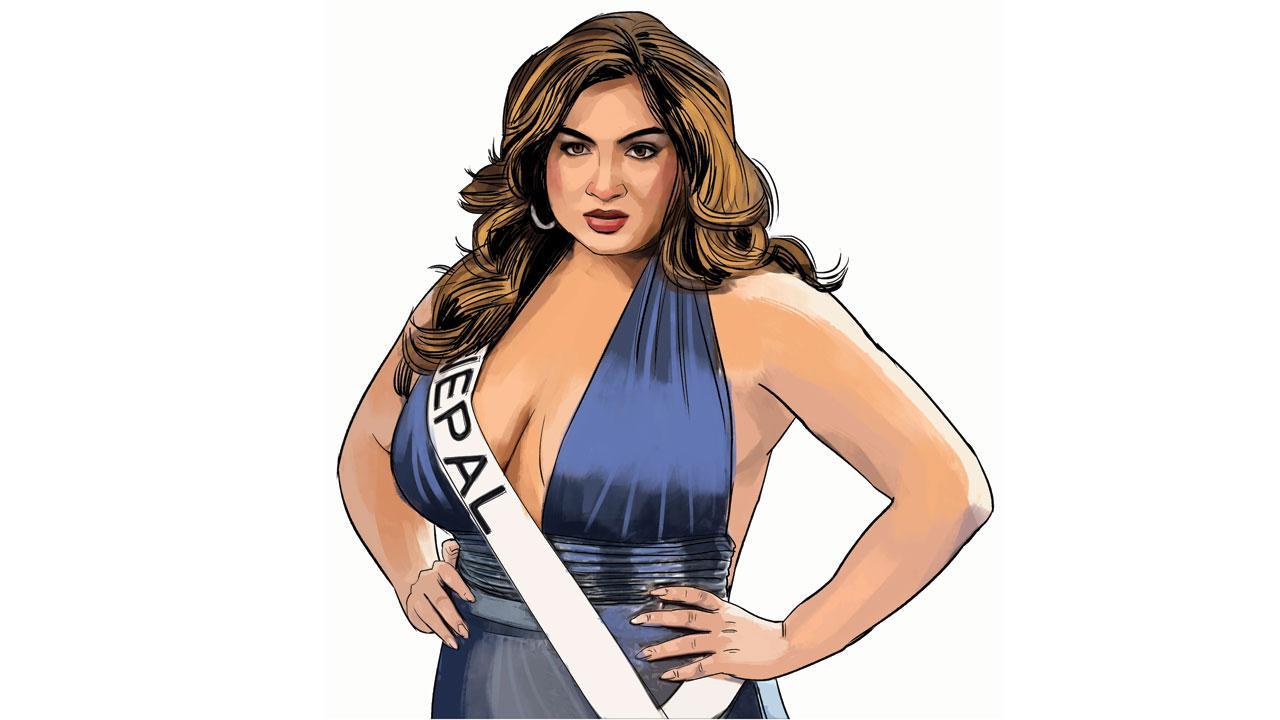The outer world keeps trying to deny our whimsy and our marzi with its thin-lipped yes and no options.

Illustration/Uday Mohite
![]() The answer to that is rarely a yes or no. For some it’s I do, even though others don’t. Or yes, but not by conventional standards. Or no, I don’t think it though people keep telling me so. Or yes, but only in secret. Or, sometimes yes. Or, I don’t think about it, really. Or, I began to feel it when someone found me beautiful. Our inner lives are fluid with iridescent subjectivities—consider the social media swooning because Pat Cummins is a chasmish. The outer world keeps trying to deny our whimsy and our marzi with its thin-lipped yes and no options.
The answer to that is rarely a yes or no. For some it’s I do, even though others don’t. Or yes, but not by conventional standards. Or no, I don’t think it though people keep telling me so. Or yes, but only in secret. Or, sometimes yes. Or, I don’t think about it, really. Or, I began to feel it when someone found me beautiful. Our inner lives are fluid with iridescent subjectivities—consider the social media swooning because Pat Cummins is a chasmish. The outer world keeps trying to deny our whimsy and our marzi with its thin-lipped yes and no options.
ADVERTISEMENT
As I watched a viral video clip of Miss Nepal Jane Dipika Garrett in the swimsuit round of Miss Universe 2023, something sparkly happened. She was liquid, lush and warm as caramel on the stage; so gorgeous and like a real person, relaxed and confident—but most of all, so much enjoying herself. I didn’t think as I watched her “oh a plus-sized contestant” as I later saw her described in the media. I didn’t compare myself to her or feel validated as a fat woman myself. In fact, I didn’t think of myself at all. I simply thought woah, what a smashing woman. For a moment, beauty became about pleasure, not power or identity or anxiety.
Even as a baby feminist, I found it hard to get worked up about beauty pageants, except for their twee-ness. Yes, they promote constricting beauty standards to propel capitalism, as do patriarchy and caste. Yes, many women have also used them to craft journeys of success and power so far denied to them, albeit a restricted definition of success. In binary discussions of oppression versus liberation there’s little space for that human thing: mixed feelings. The politically correct response is often so-called “Inclusive” or “Body Positivity” issues of lifestyle magazines. This always makes me laugh. It’s like a panauti kaun self-goal because it implies that the other issues are Body Negative. They make a small box for inclusivity leaving the “real” definitions of beauty and glamor untouched. In the end beauty pageants or magazines are not really about beauty but that great falsehood—objectivity. By acting like beauty is something that can be conformed to “international standards” —ISO 9000 beauty—these authorities discipline our inner lives and decide to let in a few body positive immigrants in the name of diversity. Where’s the fun in that?
Also read: Goa: Guns and bulbuls
Some people are objectively beautiful but our responding to anyone’s beauty is subjective. Sometimes beauty suddenly comes into view when the eyes of the beholder and the beheld meet and smile at each other. Sometimes, that may be us beholding ourselves in the mirror.
The struggle is really how to wrest the idea of beauty as beautiful from all the social hierarchies that create discrimination as well as grim objectification-101 scoldings. How to liberate the idea of beauty into ordinariness, to help us celebrate beauty a little more casually, and thus our humanness and subjectivity. That’s the most basic definition of being comfortable in our own skin. In everyday life, people keep doing that in small and big ways, enjoying their own beauty and others’ without making a big deal of it. For a few minutes, Miss Nepal’s sumptuous hotness exceeded sensuously those binary lines, expanding that feeling. Maza aa gaya.
Paromita Vohra is an award-winning Mumbai-based filmmaker, writer and curator working with fiction and non-fiction. Reach her at paromita.vohra@mid-day.com
 Subscribe today by clicking the link and stay updated with the latest news!" Click here!
Subscribe today by clicking the link and stay updated with the latest news!" Click here!







